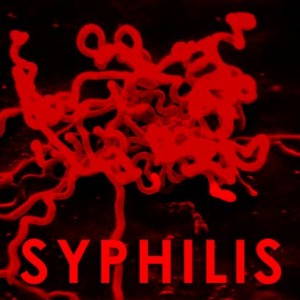How to Treat Syphilis
posted by: Gretchen
 Apparently, there are a lot of sexually transmitted diseases (STDs) that can afflict an individual. The infections can come in a varying diseases like herpes, gonorrhea, chlamydia, trichomoniasis, and the most serious – the HIV/AIDS. The statistics of the individuals being affected with these diseases through vaginal, oral, and anal transmission continue to take its toll which is why we should be completely aware on how to handle when confronted with the situation. In today’s post, we’ll tackle another STD which is dubbed as the “great imitator” – syphilis. Syphilis, just like any other sexually transmitted infections is highly contagious and can be life threatening when left untreated. The disease is caused by the bacterium Treponema pallidum which is also dubbed as the pox. Continue reading on as we tell you how to treat syphilis.
Apparently, there are a lot of sexually transmitted diseases (STDs) that can afflict an individual. The infections can come in a varying diseases like herpes, gonorrhea, chlamydia, trichomoniasis, and the most serious – the HIV/AIDS. The statistics of the individuals being affected with these diseases through vaginal, oral, and anal transmission continue to take its toll which is why we should be completely aware on how to handle when confronted with the situation. In today’s post, we’ll tackle another STD which is dubbed as the “great imitator” – syphilis. Syphilis, just like any other sexually transmitted infections is highly contagious and can be life threatening when left untreated. The disease is caused by the bacterium Treponema pallidum which is also dubbed as the pox. Continue reading on as we tell you how to treat syphilis.
What are its Signs and Symptoms?
- Painless sores or chancres on the vagina, vulva, cervix, penis, anus, or mouth
- A non-itchy rash
- Fever
- Swollen glands
Oftentimes, the symptoms can be hard to recognize as they resemble symptoms of other diseases. Moreover, the most symptoms may take 3 months before it actually appears thus leading to secondary stages of infection.
How to Cure Syphilis
Like any other infections, early detection of syphilis is still the best way on how to treat it. This goes alongside prompt medical intervention as well as close monitoring. Most people are looking for home remedies which can actually cure the problem; however the condition is more than what one can treat. Seeking the help of a medical professional would still be the best remedy on how to treat syphilis.
The antibiotic, penicillin, is actually the drug of choice for treatment of the disease. This is usually given as a shot through the intramuscular route. For patients who have had the infection for more than a year may need additional doses for cure.
Usually, before the antibiotic is given, skin testing is done to see if the sufferer is allergic to penicillin. Other antibiotics may be given if the patient is allergic to the drug. This drug will help kill the bacteria causing the condition and preventing it to pose further complications to the person.
Sexual abstinence should be practiced by patients until the sores/chancres are completely healed. Finally, the sufferer must also inform their sexual partners regarding his history for testing and finding out if they are at risks for having the disease.
Though medication is widely available to help on how to treat syphilis, prevention of the disease has still a greater value on how to avoid contraction of it. Sexual abstinence as well as engaging in risky behavior is the surest way on how this can be prevented. Be responsible and take charge of your health!
You might also like
|
|
|
|
|




